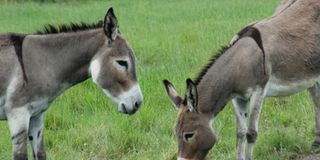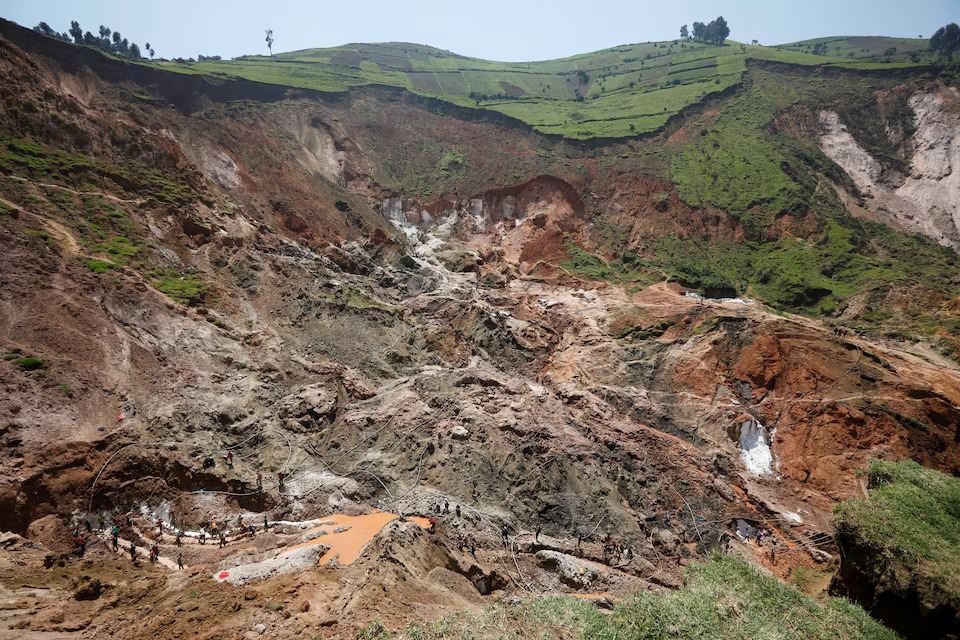Tanzania bans slaughter of donkeys and dogs in animal welfare move

What you need to know:
- Dr Kitambi explained that the regulatory changes are part of a broader government effort to protect the dwindling donkey population, which has come under increasing threat due to rising demand for donkey meat and skins.
Dodoma. Tanzanian government has removed donkeys and dogs from the list of animals approved for slaughter and human consumption in a policy shift that seeks to protect the animals which have been in the risk of extinction.
The domesticated animals especially the donkeys, have been in danger of extinction due to large-scale harvesting for meat and skin that was previously taking place in Dodoma, Singida, and Shinyanga.
Investors from China opened slaughter factories in Dodoma and Shinyanga, and were slaughtering up to 500 donkeys per day.
The government already banned the slaughter of donkeys for commercial purposes and closed all donkey meat factories.
The recent policy shift, aimed at curbing the meat trade involving such animals, reflects growing concerns over animal welfare and conservation from activists.
Deputy director of animal rights and welfare at the Ministry of Livestock and Fisheries, Dr Annette Kitambi, confirmed the decision during a stakeholders’ workshop on animal welfare held in Dodoma recently.
Dr Kitambi explained that the regulatory changes are part of a broader government effort to protect the dwindling donkey population, which has come under increasing threat due to rising demand for donkey meat and skins.
“This decision is essential for safeguarding donkeys, whose numbers have been steadily declining due to unsustainable slaughter practices in several regions,” she said.
She added that the government is also revamping training curricula to ensure that donkeys are better recognised and protected, with particular emphasis on breeding to boost their population.
The population of donkeys was estimated at 657,000 in 2018/19 with activists are calling for their protection.
Dr Kitambi emphasised that the government is keen on raising awareness about donkey welfare through a series of public education campaigns.
The initiatives include outreach in markets, television and radio programmes, as well as the appointment of animal welfare inspectors at the local government level. An advisory board has also been set up to assist the ministry on animal welfare matters.
“It’s common for donkeys to be overworked, often carrying loads far beyond their capacity,” Dr Kitambi lamented. “There’s a saying, ‘Load the donkey until it collapses, then you’ll know it’s enough,’ which we need to change by educating the public about proper care.”
Despite the government’s 2021 ban on donkey slaughter, concerns persist over the illegal trade in donkey meat.
Deputy registrar of the Veterinary Council of Tanzania, Dr Bedan Masuruli, presented a report highlighting ongoing slaughter activities, particularly in Geita, where donkeys are transported from across the country.
“The ban mainly targeted the Fang Hua donkey meat processing factory in Shinyanga but slaughtering continues, and permits for the transportation of donkeys are still being issued,” Dr Masuruli noted.
He also raised alarm over the donkey skin trade, which remains active, with donkeys being smuggled into Kenya.
Dr Masuruli stressed the need for closer collaboration between Tanzania and Kenya to control the cross-border trade, as Kenya is a major market for donkey products.
Director of a non-governmental organization Inades Formation Tanzania (IFTz), Mr Mbarwa Kivuyo, called for stronger regional cooperation to tackle the challenges facing donkeys.
IFTz, in partnership with Brooker East Africa, has been at the forefront of advocating for the protection of donkeys in the country.




